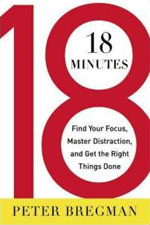What’s inside? Here are the questions answered in today’s reader mailbag, boiled down to five word summaries. Click on the number to jump straight down to the question.
1. Will and/or trust
2. Setting monthly savings goals
3. Buying a SUV
4. Geocaching
5. HAMP concerns
6. Credit card to fund Roth?
7. Television as cheap hobby
8. On depressing career track
9. Online personal finance software
10. Splitting IRA and loan payments
Several parents wrote to me and asked how we handle the annual tradition of “trick or treat night” with our children.
Simply put, we allow our children to go trick or treating in our neighborhood. One of us goes with the children, while the other stays at home to hand out candy to the (literally) three hundred children that will stop by our house.
When they get home, we allow them to eat three pieces of candy that night, then we put the rest into a shared “black tub.” If they behave well, they’re allowed to have one piece of candy out of the “black tub” per day. Of course, they have to remember this themselves, and they often don’t.
We usually end up having more candy on hand than they ever eat.
Q1: Will and/or trust
I have 5 children, whose ages are 25, 28, 29, 45 and 48, and I have two grandchildren, 2 and 5. I am close only to tne youngest child. I have a substantial amount of money invested, and am trying to decide how to split it among my children and 2 grandchildren. 4 of my children choose not to include me in their lives, don’t come to visit, or even, in some cases, don’t write or call. When I was in the hospital recently, the youngest took time off his construction job (where he has no benefits) and came to work on my house and help me for a week or so.
One of my daughters told me I should leave my money to all the children and grandkids equally, so there won’t be fighting. I lean toward a small amount to each child, and then dividing a large amount according to the care and concern each has shown me–if they don’t care about me, why should I leave them money?
I am torn but my failing health and advancing age (I am 68) tells me I had better decide or I will die intestate and that isn’t how I want things. It would solve the problem for me though. Another of my kids, when told I might want to leave a scholarship or a charitable trust, told me I shouldn’t be considering spending “her” money that way. My children can be very selfish, but I don’t want to punish them, I just can’t decide how to divide what I have. Can you help
- Mary
Leave your money how you want to leave it. Include a note in your will saying exactly what you said here, that you gave money according to the care and concern they gave for you, that it was your own decision, and that you spoke to none of them about it before or after making it.
If your children are selfish and show you no care or concern, forget about them.
If you’re worried about their relationships after you’ve left, ask yourself how good their relationships are now, and also ask yourself whether or not jealousy and anger will exist no matter what you do. Trust me, equality does not make everyone happy. In your picture, for example, does everyone have the exact same number of children? Does everyone have the exact same economic status? If not, there are going to be people claiming that they deserved a different share or that they got ripped off. I have personally witnessed this happen.
Do what you want to do. Let them do whatever they may, because they’ll do it with or without you.
Q2: Setting monthly savings goals
I am a temporary resident living in Canada. I’m single, 27 years old and graduated this May with Computer Science Degree. I work as a Programmer and make $44,700 basic+$11,000 worth of perks on top. After federal tax and health insurance I end up with around $2,300 per month. I have $3000 in student loan to pay back to my parents and no other debt and no credit card (I want to get one considering it makes online purchases/flight tickets possible). I put 5% to my pension plan and the company matches it. I have no emergency fund yet.
Regarding my spending habits, I am neither frugal nor spendthrift. I like shopping but I do so based on need of the apartment I’m living in (Rent= $750) and if I like something I want and it’s less than $50 I buy it without hesitation. Usually for bigger expenses such as if I want a gadget say laptop worth $1000, I look at my savings or I target for X amount of saving before I buy the prized possession. I love to plan and use excel spreadsheet for everything – from work, home expenditure to my 1-5-3 year goals. My parents will retire soon (dad next year and mom in 2014) and are hoping to come live with me here in Canada, I want to support, provide them with whatever their needs and wishes are openly as they age. I also travel once/twice every year to California(sister) or India (parents).
I don’t have any financial goals yet (Monthly,Quartery or yYearly). I plan and save ONLY when I want something such as some thing(gadgets, shoes, handbags etc). My fixed expense is $950 (Rent $750,Phone Bill $50, Starbucks $ 150) My Boy friend buys all the groceries as he is living with me until May 2012 before moving back to his home in U.S permanently. For snow storm days I take the local transit which is $2, in rain, hail or sunshine I walk to work which is aprox. 25 minutes walk (to and back- keeps me fit). So given those figures, What monthly savings goals should I have?
- Sandra
Your email tells me little about what goals you should have. All it mentions are the things that you’re doing now, not the things you want to achieve.
What things do you want to achieve in the future? When? What money is going to be needed to achieve them? That, right there, is your list of financial goals.
Your savings goals should exist solely to meet your highest priority financial goals. I can’t tell you what those goals are. That’s something that comes from your own life. Financial goals are intertwined with the life you want to live, not someone else.
Sandra then followed up with a goal-oriented question.
Q3: Buying a SUV
I want to purchase an SUV next year and then eventually a two bedroom house. Also I want to save some amount for my wedding (not until i get citizenship i.e roughly 3 years). How much do I must need to save?
- Sandra
Let’s look at each one, then.
Let’s say you want to buy a SUV in one year. If you’re buying a used one, let’s say it will set you back $10,000. You’ll need to start saving about $850 a month to make that goal.
If you want to have a wedding in three years and want to start saving now, you’re going to need an estimate of how much you’re going to budget for that wedding. If we say it’s going to be around $10,000, you’ll need to start saving about $300 a month to make that goal.
All told, you’re going to need to sock away $1,150 a month for these goals starting today, dropping back to $300 a month when you get the SUV.
Alternately, you could focus entirely on the SUV saving first. Save $850 a month for the SUV now, then save about $425 a month for the wedding starting when you get the SUV paid off. This is probably a more financially reasonable plan.
Q4: Geocaching
Several families have told me recently that they participate in geocaching as a cheap and fun hobby. What is your take on geocaching?
- Randall
It’s fun, inexpensive, and family friendly. All you really need is a GPS unit, a functional mode of transportation, and some spare time to enjoy it.
We’ve used GeoCaching.com to find some caches in the past, and have also been given coordinates by friends.
The thing to keep in mind with geocaching is that you’re not expecting to find an awesome treasure. Instead, you’re mostly trying to enjoy the experience of finding the cache, and when you do find it, you get to see something (usually) interesting inside and perhaps swap it for something you bring with you that someone else might find interesting. For example, I did some geocaching where I left behind signed copies of my book in a waterproof bag.
It’s mostly just an excuse to get outside with the family and explore with some semblance of purpose.
Q5: HAMP concerns
I owe approx. $121,000 on a house that is worth $90,000 now. I have an FHA loan. Two months ago I contacted my mortgage company, Bank of America, about the HAMP program to see if I qualify. One month ago they sold my mortgage to another company, Greentree, that does not participate in this program. I heard on the radio that all of these programs are ending Dec 31st this year. Can I do anything about my underwater mortgage without actually selling my house and moving. I still have 20 yrs until I retire so I really do not want to move. I can pay my house payments but really do not want to pay more for a house that its worth. Any suggestions?
- Paula
If your lender is not participating in HAMP, you can’t benefit from it. HAMP only works if the lender is cooperative to the process.
If you’d like to try anyway, you can always call the HAMP Hope hotline at 888-995-HOPE and see if they have a suggestion for you.
However, I wouldn’t expect a loan modification. Banks that took federal bailout money were somewhat pushed into the HAMP program, and banks that didn’t take such money don’t have the motivation to participate in loan modifications unless they’ve determined it is in their financial best interests.
Q6: Credit card to fund Roth?
My husband and I are both 28. We are in the 15% federal tax bracket. This year we have put a lot of money into our house and we are unable to fully fund our Roth IRA’s for 2011.
I received some checks from one of my credit cards with 0% interest for 1 year and a 3% balance transfer fee.
Assuming we can pay off the credit card before the 0% interest ends, would you recommend we use the CC offer to fund our Roths this year?
- Charlene
This is an extremely poor idea. You are far better off just skipping the Roth contribution for this year rather than borrowing money to make the contribution.
There are a multitude of things that can go wrong in your life in the future that can cause you to regret this move, from personal crises to simply forgetting to cover a bill. By having a large amount of debt on a credit card, even a 0% one, you’re simply giving yourself a helping of financial risk.
Let’s say you do this and the stock market takes a dive, which it very well might after the strong run it’s had recently. One of you loses a job, then you find yourself needing that money. Not only have you lost your Roth contribution for the year, you’ve also taken a healthy loss on that money, which means you can’t pay back the bill at a time when money is tight.
Recognize that you did invest that money this year – into your house – and plan so that you can contribute next year.
Q7: Television as cheap hobby
I don’t understand why you deride television so much. It’s an incredibly inexpensive hobby. For the hours of enjoyment I get out of it, I pay pennies.
- Monica
Television is an incredibly passive and addictive form of entertainment. Your brainwaves actually slow (from beta waves, which indicate active thought, to alpha waves, which are almost sleep-like) when you watch it for more than a moment.
It’s embedded with a constant stream of advertisements and even product placements within the programs with the sole purpose of either convincing you to buy or altering your viewpoints on public policy.
The vast majority of viewing is done in a physically sedentary state as well.
It requires electricity to run and requires a paid programming service for most of what you see beyond the four or five broadcast networks.
I just don’t find it to be an effective use of my leisure time or leisure dollars, given the vast world that’s available in the outdoors, with friends, or at my local library.
Q8: On depressing career track
I live in Eastern Europe, and i am remotely working for a French Company. I do get great salary (would be considered good even in US – about 40k after taxes), mainly because taxes here are very low. I can work whenever i want, as long as my job is done and i can do it from any location in the world. So far sounds great ? well it is not, i lack any motivation in what i do. There are no companies that can pay me better in my own country, nor can give me same freedom. I am not willing to relocate to other country , as i do have a family here. Basically i can not get promotion as i am outsourced employee. So i am kind of stuck here. Don’t like much what i do, but i can’t say i hate it. The way economy is going i see myself being in the same situation for many years. This is utterly depressing. I can’t leave it and it is not easy to live with it too. Any recommendations how to deal with all this?
- Alan
If you don’t have the kind of work available to you where you live, your options are limited. You either can move to find work (which you seem to have ruled out), you can try to find work in a different field where you live, or you can telecommute if you have the right kind of career.
You seem to be unhappy with the choice you’ve made – telecommuting – and you’ve ruled out moving to find work, too.
My suggestion, then, would be to try to find work in a different field where you live. This may involve re-education or training, of course, but at least you’ll be in a career path that you have more control over in the area where you choose to live.
The key to fighting depression with your career is to take action and seek a different path than the one you’re on.
Q9: Online personal finance software
Our family dynamics are changing and I am having a difficult time adjusting what I do to monitor the family finances.
Once upon a time I was a Microsoft Money Junkie. Our computer with that software died many moons ago, but we had a plan in place so I was able to handle/monitor things through Excel. Now my husband wants to start a side business, and our children are approaching moving out/college age, so I think it is time to adjust or create a new budget/plan.
The computer that I currently use, is for teleworking. The company I work for does not have an issue with me using it for personal use (though there are the standard exceptions); however, I cannot load software on it (company owning the licensing on whatever is on the computer). I have looked at many of the online software available and find them lacking. The feature I am missing is some sort of cash flow statement. One that looks at the end of the month/quarter/year with reoccurring bills/ income and states what the balances will be. To me this is key.
In your exposure to this subject, do you know of a software that has this function?
- Jennifer
The software that immediately comes to mind here is Mint, which does most of what you describe in the convenience of a web window.
The software they have is very impressive and I have no complaints about how it works.
However, my concern with using Mint has stood since it first became popular. I am uncomfortable aggregating that much personal information about myself into one place. It has nothing to do with the quality of their information security. It has to do with human security. All it takes is one person to do something unethical and all of my personal finance information is in someone else’s hands.
To me, there is almost no software that’s worth that. I don’t even keep my personal information on my internet-accessible computers at home. It’s just not worth the risk.
Q10: Splitting IRA and loan payments
My two main sources of debt are a car loan (~$18K @ 3.75%, $336/month minimum) and students loans from 8 years of college (~$26K @ 4.25%, $174/month minimum). I also have a mortgage on my home (~$105K @ 4.25%, $825/mo including property taxes and insurance), but I’ve left that out of this scenario as I’m more concerned about paying off the car and student loans right now. I have no credit card debt. I currently have enough money in my emergency fund to last about four months, which is an amount I’m comfortable with.
I make $46K/yr, and have about $850 each month left over after all my necessary expenses (the minimums on the loans above are included in the necessary expenses, so everything that follows is on top of the minimums). Out of that $850, I put aside $100/mo for “goals” (road trips, hobbies, etc) and $100/mo for renovations I’m doing on my home. This leaves $650/mo to split between my IRA contributions (my employer doesn’t currently offer a 401(k)) and paying down the loans. In addition, I have the 25th and 26th biweekly salary payments of roughly $1471 each that I don’t factor into my monthly budget at all.
My question is this: is there an ideal way of splitting the money between the IRA and loan paydowns? I could do something like this:
IRA – $171.50/mo plus $2942 (both extra salary payments)
Loans – $478.50/mo
or
IRA – $294.09/mo plus $1471 (one extra salary payment)
Loans – $355.91/mo plus $1471 (one extra salary payment)
or
IRA – $416.67/mo
Loans – $233.33/mo plus $2942 (both extra salary payments)
In all three, my IRA is maxed out each year and the same amount goes into the loan paydowns, but I’m wondering if one method is better than the others. For example, to minimize the interest accruing on the loans, would I get better results with two bigger and ten smaller payments each year or twelve equal payments that are somewhere in between?
- Jeff
Generally, with debt payments, the earlier the extra payment is, the better. The reason is that an early payment locks you in to lower interest over the lifetime of the loan. An early payment in January will cause you to have a lower loan balance all through the year (accruing less interest) than an early payment in December.
With an IRA, it’s impossible to tell which is better because investment markets are very unpredictable. You can’t know for certain what they’re going to do in the future. The common tactic is to just invest the same amount every week or month and hope to ride both the ups and downs to a good conclusion.
If I were you, I’d pay the IRA as steady as possible. If you have any “bursts” of money available, I’d apply them to your loans the first moment you can. That would point me toward your third plan.
Got any questions? Email them to me or leave them in the comments and I’ll attempt to answer them in a future mailbag (which, by way of full disclosure, may also get re-posted on other websites that pick up my blog). However, I do receive hundreds of questions per week, so I may not necessarily be able to answer yours.
 Saving Pennies or Dollars is a new semi-regular series on The Simple Dollar, inspired by a great discussion on The Simple Dollar’s Facebook page concerning frugal tactics that might not really save that much money. I’m going to take some of the scenarios described by the readers there and try to break down the numbers to see if the savings is really worth the time invested.
Saving Pennies or Dollars is a new semi-regular series on The Simple Dollar, inspired by a great discussion on The Simple Dollar’s Facebook page concerning frugal tactics that might not really save that much money. I’m going to take some of the scenarios described by the readers there and try to break down the numbers to see if the savings is really worth the time invested.



 My new book, The Simple Dollar: How One Man Wiped Out His Debts and Achieved the Life of His Dreams, is available in bookstores now! Check out some of the
My new book, The Simple Dollar: How One Man Wiped Out His Debts and Achieved the Life of His Dreams, is available in bookstores now! Check out some of the 







